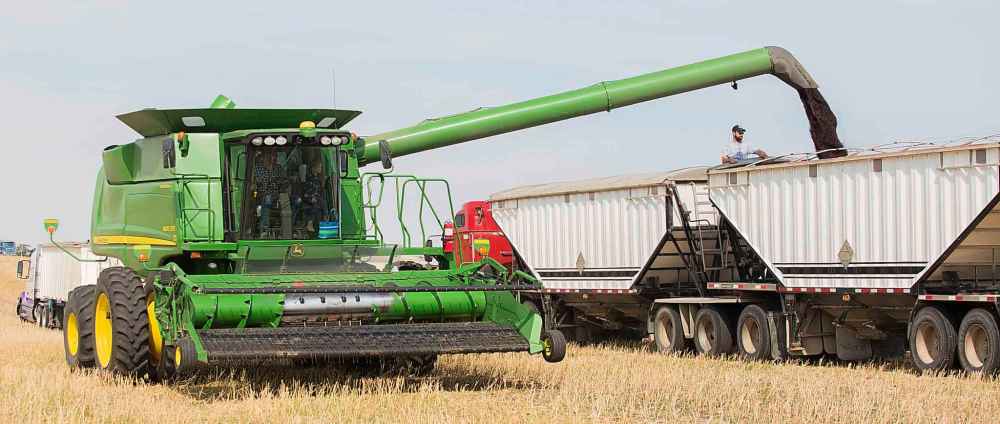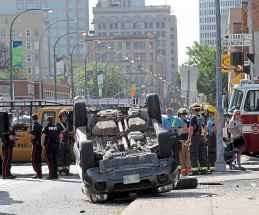As seeding time looms, canola farmers need clarity
Read this article for free:
or
Already have an account? Log in here »
To continue reading, please subscribe:
Monthly Digital Subscription
$0 for the first 4 weeks*
- Enjoy unlimited reading on winnipegfreepress.com
- Read the E-Edition, our digital replica newspaper
- Access News Break, our award-winning app
- Play interactive puzzles
*No charge for 4 weeks then price increases to the regular rate of $19.00 plus GST every four weeks. Offer available to new and qualified returning subscribers only. Cancel any time.
Monthly Digital Subscription
$4.75/week*
- Enjoy unlimited reading on winnipegfreepress.com
- Read the E-Edition, our digital replica newspaper
- Access News Break, our award-winning app
- Play interactive puzzles
*Billed as $19 plus GST every four weeks. Cancel any time.
To continue reading, please subscribe:
Add Free Press access to your Brandon Sun subscription for only an additional
$1 for the first 4 weeks*
*Your next subscription payment will increase by $1.00 and you will be charged $16.99 plus GST for four weeks. After four weeks, your payment will increase to $23.99 plus GST every four weeks.
Read unlimited articles for free today:
or
Already have an account? Log in here »
Hey there, time traveller!
This article was published 02/04/2019 (2455 days ago), so information in it may no longer be current.
If Manitobans seem frustrated by a blockade of canola, that’s because we have a lot of seed in the game.
This province has long felt a special pride in canola since it was developed by researchers from the federal government and the University of Manitoba in the 1970s. The first variety was registered by U of M research scientist Baldur R. Stefansson, known as the Father of Canola.
The development of a type of rapeseed that could be used as an edible oil is a true Manitoba success story and it’s gone on to be the largest field crop grown in Manitoba. Exports of canola seed and products generated $1.7 billion for Manitoba’s economy in 2017.

This vested interest explains the grim-faced consternation that arose in Manitoba when China maligned Canadian canola with claims that recent shipments contained “dangerous pests,” using this claim as a spurious excuse to stop buying Canadian canola.
The claims of infested canola are best ignored as make believe. Since the allegation was made four weeks ago, Canada has repeatedly asked China to produce samples of “dangerous pests” in Canadian shipments. Two tests so far have come up negative. No other countries have complained about pests.
Instead, China’s decision to ban an annual $2 billion worth of Canadian exports is widely seen as retaliation for Canada’s arrest of Meng Wanzhou, the daughter of the founder of telecom giant Huawei, at the behest of the United States.
The cause of this controversy is worth repeating bluntly: the blockade is not a problem with the plant. It’s a problem with the politicians.
Still, it’s the canola farmers who will pay the price because the political decision to detain Ms. Meng provoked disguised retaliation from China, which usually buys up 40 per cent of Canada’s canola-seed exports.
On Friday, Agriculture Minister Marie-Claude Bibeau and International Trade Diversification Minister Jim Carr said the federal government is considering financial aid to canola farmers, some of whom could face lower prices or even be unable to sell their seed.
And during a visit to Winnipeg earlier last week, Prime Minister Justin Trudeau and Mr. Carr met with Richardson International, and said they were considering sending a “high-level delegation” to China.
The politicians are saying the right things, but snow is melting rapidly from fields and canola farmers need to know what to plant. They normally plan three or four years ahead, but in case of an emergency — and losing a major market qualifies as an agricultural emergency — they can change course and reallocate their land. But a wild card prevents farmers from making knowledgeable decisions: will the government provide financial aid if the canola market tanks?

There are often good reasons for politicians to proceed cautiously and take all the time required for balanced, responsible decisions. But there are also times when a situation demands swift action.
By all means, Mr. Trudeau should send a delegation to China to work out the problem diplomatically. And ensure the delegation invites someone with high-level experience in the business of canola, such as Richardson International chief executive officer Hartley Richardson.
But while the delegation is being arranged, give a definite answer on aid. The farmers deserve an answer of “yes,” but even if the answer is “no,” state it now, while canola growers still have the opportunity to adapt and change if required.
The fields are almost ready for seeding. But farmers can’t plant words or good intentions.








